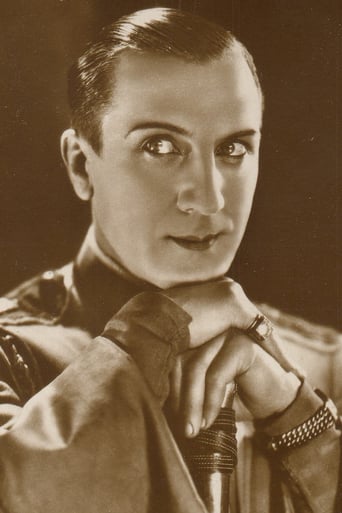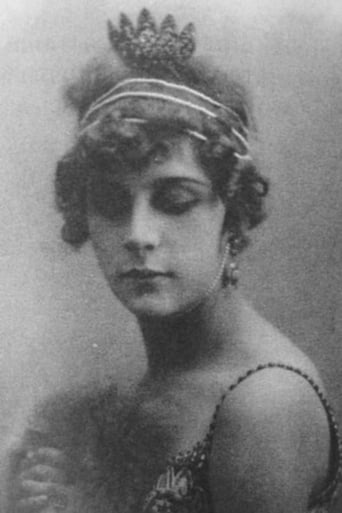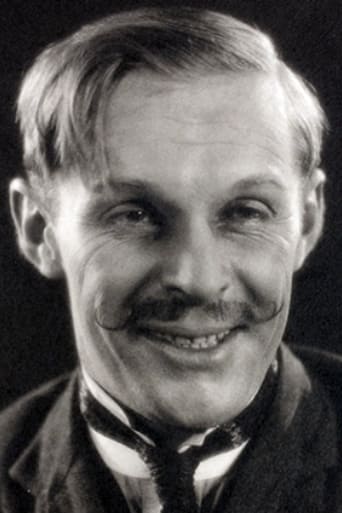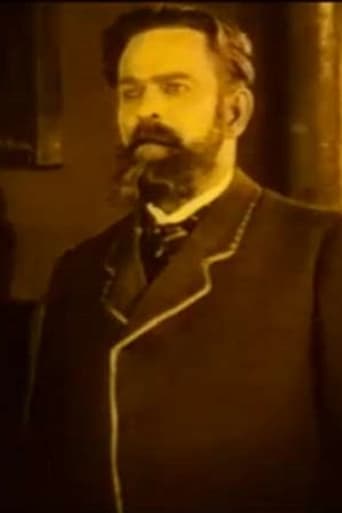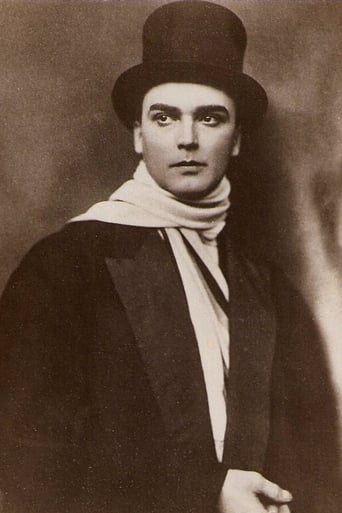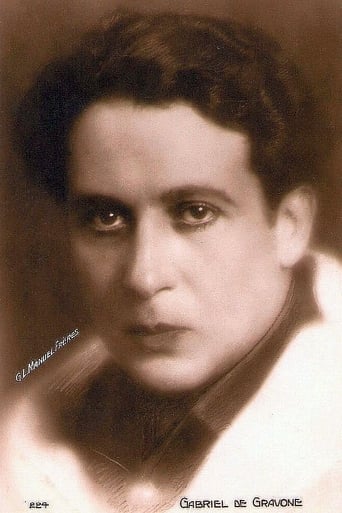FuzzyTagz
If the ambition is to provide two hours of instantly forgettable, popcorn-munching escapism, it succeeds.
Humaira Grant
It’s not bad or unwatchable but despite the amplitude of the spectacle, the end result is underwhelming.
Rosie Searle
It's the kind of movie you'll want to see a second time with someone who hasn't seen it yet, to remember what it was like to watch it for the first time.
Guillelmina
The film's masterful storytelling did its job. The message was clear. No need to overdo.
MissSimonetta
It boggles the brain how the 1926 Michael Strogoff has only been released on VHS and so little discussed in the nine decades since its premiere. It only has intelligence, beautiful production values, fluid cinematography, excellent performances, and action scenes which put the over-choreographed slow-mo fests of modern blockbusters to shame.The film is a perfect showcase for the technical dazzle of the late silent era. Jumpy, jittery, broadly-acted flickers these were not: the camera glides through scenes, the editing is as fast-paced as the action, and the acting is restrained.Much has been said of Ivan Mosjoukine's turn in the lead, but for me, the show is utterly stolen by his leading lady, Nathalie Kovanko. Her character Nadia is no fluttering damsel; risking her life to protect her loved ones and even saving Strogoff several times, she is a heroine in her own right.All in all, Kino Lorber or Criterion should jump on this, or at least Grapevine.
FerdinandVonGalitzien
Due to his advanced age, this German count remembers very well (actually, again because of his many years, perhaps not all that well) the success of the famous novel "Michel Strogoff" written by the French writer Herr Jules Verne some centuries ago.As every longhaired youngster knows, aristocrats prefer to spend their idle time in trifling matters, so this Herr Von acted consistently and avoided the great effort of reading the book and instead waited for some highly reputable and skilled film director to properly adapt that novel about the courier of the Czar for the silent screen.And that important silent film adaptation of Herr Verne's "Michel Strogoff" came in the silent year of 1926 thanks to Herr Viktor Tourjansky, who surrounded by a crew of mostly Russian émigrés like himself, made an excellent French-German silent film production. This was a perfect match, that is to say: a Russian crew for a book set in old Russia for a French silent film production of a famous French novel ( obviously the German presence gave weight to the production ).The film is a lavish big budgeted production, appropriate for such a vigorous novel. The magnificent décors are by Herr Alexandre Lochakoff who with such a Russian name obviously knew very well what he was illustrating and there is also the splendid art direction by Herr Noé Bloch and the great Russian star Ivan Moskoujine as the title character. Some of the battle scenes are set in Latvia and were done with the help of the Latvian army itself (with the permission of the Latvian Minister Of War, natürlich!) and there are also some coloured scenes included in the film that give to the oeuvre a special atmosphere of decadent antiquity, especially in the Russian court sequences. The diversity of cast and crew suggests a Tower of Babel but the mixture of the different elements gives charm and effectiveness to the oeuvre that during it's almost three hours running time maintains the rhythm and interest in what is a splendid classic adventure, very well structured and entertaining.And now, if you'll allow me, I must temporarily take my leave because this German Count is waiting for aristocratic Herr Postman.Herr Graf Ferdinand Von Galitzien http://ferdinandvongalitzien.blogspot.com/
Rosabel
This is a gorgeous and visually exciting film, which has held up exceptionally well in the 80 years since it was made. The story is quite fast-paced, considering its length and the absence of dialogue except for the titles. Since silent movies have to depend on much more physical acting to get across the story, moods and personalities of the characters, they can often lapse into sluggish spells, with actors piling up the emoting to get the message over. Not this film. The acting for the most part is very natural, and Mosjoukine is so sensitive and accomplished that he can convey every type of emotion as easily and efficiently as a modern actor, with all the advantages of sound. I really can't say enough about his performance; he does everything - humor, shyness, pride, rage, shame, love - you name it.There's one scene where he's overjoyed that his horse has managed to find him in the midst of a warzone, only for it to be shot dead a moment later by attacking Tartars. The way he goes in a few second from a sort of quiet joy to heartbroken grief over this poor horse is just breathtaking. He was obviously a professional of the highest quality, and it's a pity he's nearly forgotten today. At least this film is beautifully restored, and may introduce people to an actor who deserves to be counted among the great performers of silent film.
hamilton65
A wonderfully exciting and action packed adventure, Michel Strogoff was a big hit in it's time but with the coming of sound was virtually forgotten until this superb restoration returned it to it's proper state. A huge production, easily rivalling Hollywood's biggest, it represents the French film industry at it's most accomplished although ironically two of the prime personnel were Russian émigrés. Directed by Viktor Tourjansky, this film has it all, epic sweep, pulsating action, intrigue, romance and even a little comedy relief. Despite a 3 hour length, the pace never lags and the story is compelling throughout. Technically this is cutting edge 1926-style, with it's use of colour and tinting as well as some dazzling editing of the type associated with Gance and Eisenstein.It left me stunned and exhausted.But what raises this film to true classic status is the incredibly charismatic performance of Ivan Mousjoukine, who draws us effortlessly into Strogoff's mission to reach the Tsar in time to save the empire from the Tartars. From his first appearance Mousjoukine exerts a magnetic hold on our attention. He never overplays, yet conveys a wide range of emotions and thoughts with the subtlest of movements.This is acting on a level with the very best silent cinema has to offer and I found myself longing to know more about this figureThere wasn't much on the web but my friend Henry, who introduced me to the film gave me some more details.Mousjoukine was a major star in Russia until the revolution when he and other Russian directors and writers fled to France. They helped put together Film Albatross productions which also attracted directors like Jean Epstein and Marcel l'Herbier. Mousjoukine also did some writing and directing as well as acting (A film he directed, THE BURNING STAKE, inspired Jean Renoir to switch from ceramics to film!)Unfortunately, in the late twenties Albatross went under. Sound came and Mousjoukine was hampered by his really heavy Russian accent (some of the other Russians didn't even know how to speak French) and his roles became fewer and smaller. He had been a very popular star in France but he was also a big spender and his income quickly dwindled in the thirties. He died of tuberculosis in the charity ward of a hospital.Though this was a tragic and premature end (he was only 50) at least it's possible to experience the power of his acting and appreciate a figure who's overdue for re-evaluation.Come on Film Four or TCM USA, give this magical film the audience it deserves.10 out of 10
